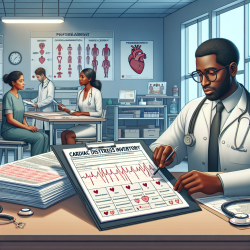The tragic events of September 11, 2001, left a lasting impact on the physical and mental health of those exposed. The World Trade Center Health Registry (WTCHR) has been instrumental in documenting these effects, providing valuable insights into respiratory and mental health outcomes. As practitioners in school-based therapy services, we can leverage these findings to improve our approaches and ensure comprehensive care for students and staff.
Understanding the Health Outcomes
The WTCHR study revealed significant respiratory and mental health issues among those exposed to the 9/11 disaster. Notably, 67% of adult enrollees reported new or worsening respiratory symptoms post-9/11, with 3% diagnosed with asthma. Additionally, 16% screened positive for probable posttraumatic stress disorder (PTSD), highlighting the extensive adverse health impacts beyond immediate injuries.
Implications for School-Based Therapy Services
The findings emphasize the importance of addressing both respiratory and mental health challenges within school environments. Here are some ways practitioners can implement these insights:
- Integrate Comprehensive Screening: Develop screening protocols that include questions about respiratory symptoms and psychological distress to identify students who may need additional support.
- Enhance Mental Health Support: Given the high prevalence of PTSD among those affected by traumatic events, schools should bolster their mental health resources. This includes training staff to recognize signs of PTSD and providing access to counseling services.
- Create Safe Environments: Ensure that school environments are free from potential respiratory irritants that could exacerbate symptoms in vulnerable students.
The Role of Online Therapy Services
TinyEYE's online therapy services can play a crucial role in bridging gaps in care due to therapist staffing shortages. By offering remote access to specialized therapists, schools can provide consistent support for students with respiratory or mental health needs. Online platforms also allow for tailored interventions that accommodate individual student needs.
Encouraging Further Research
The WTCHR findings underscore the need for ongoing research into the long-term effects of traumatic events on children and adolescents. Practitioners should advocate for studies that explore the specific impacts on school-aged populations and develop evidence-based interventions tailored to their needs.










